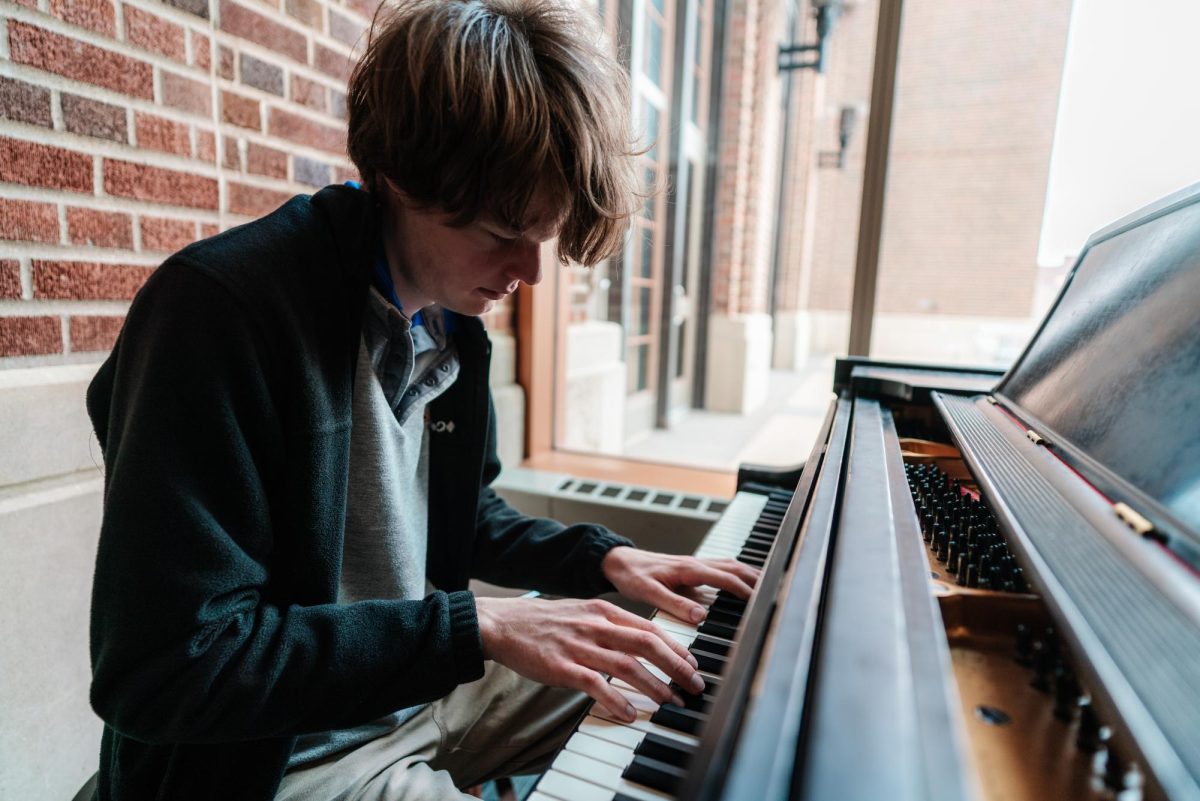Tim Crowe stared intently at his compass. After 10 minutes of trekking through waist-high weeds and bristly plants, and a detour around a giant pile of dead trees, he should have been in the right place.
The only problem was that Point H, his rendezvous point, was nowhere in sight.
“I’m really sorry, I really do know how to do this,” said Crowe, a third-year cadet in the University’s ROTC program, as he began retracing his steps.
Crowe started over again and this time walked to the edge of a hill. Underneath some dying leaves he found a pole marked Point H.
“See, I told you I knew how to do this stuff,” Crowe said.
Crowe participated in a land-navigation exercise as part of his ROTC training this past weekend at Camp Ripley, located near Brainerd, Minn.
Land navigation involves sending cadets into the woods with maps and compasses. The cadets must find their rendezvous points and return to the base in two hours.
Camp Ripley is a 53,000 acre camp operated by the National Guard. About 83 ROTC cadets from five Minnesota colleges and universities attended this past weekend’s training session.
Since its opening in 1931, Camp Ripley has been used for field training. Aside from its military uses, the installation has hosted many hunting excursions and served as a training ground for rookie Minnesota police officers.
A recent proposal by Gov. Arne Carlson could turn Camp Ripley into work camps for adult and juvenile offenders to help ease the overcrowding of Minnesota jails and prisons.
But for now, Camp Ripley serves as the major off-campus training area for ROTC programs.
In addition to the expedition in the woods, cadets learned M-16 rifle shooting and maintenance and ran through an obstacle course aimed at improving reaction time. They also learned rappelling, which involves using a rope-and-pulley system to walk down the side of a wall.
The trip gives first- and second-year cadets a chance to have fun while learning their future responsibilities, said Cadet Major Shane Morris, recruiting and retention director for the Army ROTC program.
He said the weekend program tried to avoid stereotypical army techniques, such as shouting in recruits’ faces or making them do push-ups for minor infractions.
“We try to make it as fun as possible while still taking it seriously,” Morris said.
Cadets still had to follow proper army procedures, such as waking at 5 a.m., saluting officers and standing in line formation while platoons yell out traditional Army chants.
Third-year ROTC students planned and directed the entire weekend, said Lt. Col John Oravis.
The third-year students will be heading to an ROTC officers’ advanced camp next summer so they need to gain confidence and leadership skills, Oravis said.
“My job is easy,” he said. “It’s just making sure common sense and safety prevail.”
Fourth-year ROTC students must evaluate and test the third-year students. The fourth-year students made the weekend as challenging as possible for the younger cadets by intentionally throwing in “fragos,” which are changes in the original plans, Morris said.
For example, on the bus Morris noticed that the cadets’ ponchos were attached to their pistol-belts by rubber bands. Morris said if it was windy outside, the ponchos could fly off. So he told one of the group leaders to have all the cadets move their rain gear to their jackets’s front pockets.
Morris said part of the student leaders’ evaluations was based on whether the message was directed to the proper people and the proper action was taken.
The changes are a pain, Morris said, but they’re also real life.
“In the real Army that shit happens all the time,” he said. “Sometimes it’ll drive you crazy.”
Cadet Major Patrick Zenk, battalion executive officer, said the skills cadets learn from their ROTC experience will pay off in the long run, even if they decide not to remain in the Army.
“I’ve never, ever heard of (ROTC graduates) having a hard time getting jobs in the civilian world,” Zenk said.









